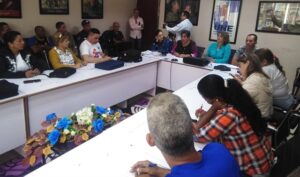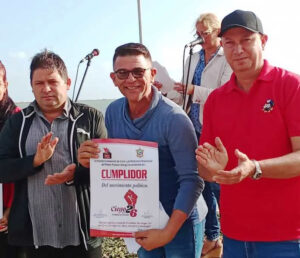Icaic celebrates its 66th anniversary, committed to charting fruitful paths for filmmakers and their works
It is no coincidence that two news items marked the 66th anniversary of the Instituto del Arte e Industria Cinematográficos (Icaic) on 24 March: the start of the shooting of Alejandro Gil’s film Teófilo, thanks to the co-production modality; and the International Meeting of Restored Cinema, an initiative that brings together representatives from more than ten countries in Havana.
These events have to do with the very clear objectives of the first cultural institution created after the revolutionary triumph: to seek new ways of making Cuban cinema, without renouncing its emancipatory values and aims; and, at the same time, to rescue and preserve the heritage that belongs to it.
The Encounter, which takes place all this week, until 30 March, also contributes to the purpose of revitalising the cinemas and attracting the public: admission to the Chaplin, Yara, 23 y 12 and Acapulco cinemas will be completely free, with screenings at two and five in the afternoon; and more than 50 restored films, 17 of them Cuban, will be shown.
The show, which began with the centenary Battleship Potemkin, includes, according to a press conference, iconic films such as La Tigra; Rata, ratones y rateros; Tiempo de morir; Cuentos inmorales; Mecánica nacional; and Prisioneros de la tierra; as well as a selection of Soviet animated films.
The event will include the Weekend of Restored Cuban Cinema, with Retrato de Teresa, Lucía, Memorias del Subdesarrollo, Now, De cierta manera, Elpidio Valdés contra el tren militar, and Los sobrevivientes, among others.
SYNERGIES
The initiative responds to a concern not only in Cuba, but also in the region (how to safeguard the cinematographic heritage if technology does not reach everyone as quickly and planned obsolescence wreaks havoc) and contains a theoretical programme to socialise practices and techniques.
Gladys González Martínez, vice-president of Icaic, stated that this type of event is unusual in the world, but essential in a context in which people are urged to return to their memories; and she referred to the networks and synergies that need to be established in order to move forward.
In this sense, he commented on his experience in the second edition of the Screen Cuba Festival, which is taking place in various cities in the United Kingdom until 29 March, with the aim of raising funds for the restoration of Cuban audiovisual works, through the screening of works from the island in cinemas. Thanks to the first Festival, it was possible to restore two animated shorts by Elpidio Valdés; and this year’s proceeds will go towards the same process for Vampiros en La Habana, another transcendental creation by Juan Padrón, which is 40 years old.
The revalidation of the Ibermedia Programme’s direct aid to the International Film and Television School of San Antonio de los Baños, and the avenues that have been opened for projects such as Arturo Sotto’s film Tengo una hija en Harvard, and a documentary on Gertrudis Gómez de Avellaneda were other good news for national cinema that Alexis Triana, president of Icaic, underlined.




